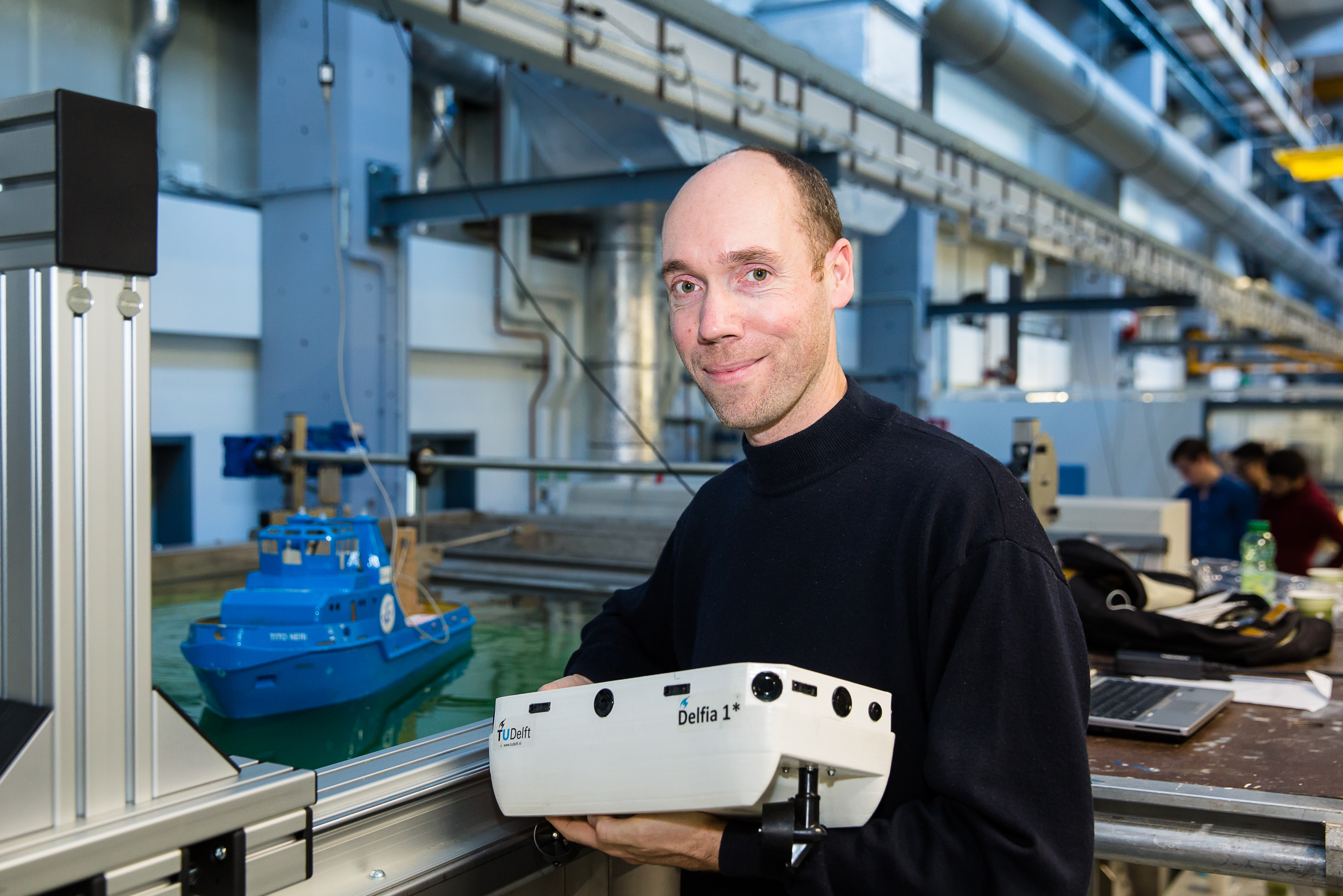Millions of euros to improve the Rhine-Alpine freight corridor
The European Commission has granted almost 9 million euros to the Horizon 2020 research programme ‘Novel inland waterway transport concepts for moving freight effectively’ (NOVIMOVE). The research focuses on improving transport on the Rhine-Alpine water corridor from Rotterdam/Antwerp all the way to Basel. Rudy Negenborn, professor of Multi-Machine Operations & Logistics at the Department of Maritime & Transport Technology, is coordinating this four-year programme in cooperation with 21 parties from six European countries. The aim is to improve efficiency on the Rhine-Alpine freight corridor in order to make much better use of this mode of transport’s low energy consumption and emissions.
Rudy Negenborn: ‘In this unique research programme, we’re aiming to ultimately increase transport on this inland waterway by 30%,’ says Rudy Negenborn. ‘We can achieve this not only with smarter vessels, but also with a smarter communication and logistics network. My research focuses on developing innovative strategies to coordinate the various components of large-scale, networked transport systems. This programme brings together the various facets of my research area in an extremely exciting way and with a focus on social issues.’
The logistics system of the inland Rhine-Alpine corridor is missing opportunities to operate more efficiently. Common problems include container ships that aren’t loaded to capacity, congested locks resulting in long waits for vessels, suboptimal navigation of ships on rivers and fully loaded ships that cannot cope with low water levels. The NOVIMOVE research team focuses on improving this logistics system on four different levels: by designing new types of vessels that can cope better with fluctuating water levels; smart river navigation by combining satellite data with real-time information about water levels and currents; smart scheduling in locks through interaction; and a more efficient scheduling and better cargo reconstruction by increasing load factors. Logistics operators, ports, system developers and research institutions from the Netherlands, Belgium, Germany, Switzerland, Sweden and Norway are working together in the consortium on the development of new logistics concepts, prototypes and communication systems to permanently improve transport on this corridor. The official kick-off is scheduled for June 2020.
Read more about the Horizon 2020 MG-2-6-2019 Research and Innovation Action programme.
Read more about Rudy Negenborn’s research.



